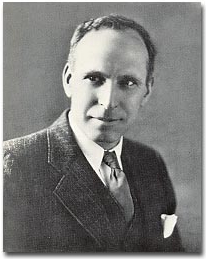A Quote by Joseph Stalin
The term "state socialism" is not precise. Under this term many understand an order under which a certain part of the wealth, sometimes a quite considerable part, passes into state ownership or under its control while in the great majority of cases the ownership of plants, factories, and land, remains in private hands.
Related Quotes
State ownership and control is not necessarily Socialism - if it were, then the Army, the Navy, the Police, the Judges, the Gaolers, the Informers, and the Hangmen, all would all be Socialist functionaries, as they are State officials - but the ownership by the State of all the land and materials for labour, combined with the co-operative control by the workers of such land and materials, would be Socialism.
The very reason why we object to state ownership, that it puts a stop to individual initiative and to the healthy development of personal responsibility, is the reason why we object to an unsupervised, unchecked monopolistic control in private hands. We urge control and supervision by the nation as an antidote to the movement for state socialism. Those who advocate total lack of regulation, those who advocate lawlessness in the business world, themselves give the strongest impulse to what I believe would be the deadening movement toward unadulterated state socialism.
All the alleged key causes of SOE [State-Owned Enterprise] inefficiency - the principal-agent problem, the free-rider problem and the soft budget constraint - are, while real, not unique to state-owned enterprises. Large private-sector firms with dispersed ownership also suffer from the principal-agent problem and the free-rider problem. So, in these two areas, forms of ownership do matter, but the critical divide is not between state and private ownership - it is between concentrated and dispersed ownerships.
Neither Italian fascism nor German national "socialism" have anything in common with such a [Soviet socialistic] society, primarily because private ownership of factories, plants, lands, banks, means of transportation, etc., remain untouched there, and, therefore, capitalism in Germany and Italy remains in full force.
We've been following many forms of democratized ownership, starting with co-ops, land banks at the neighborhood level, municipal ownership and state ownership of banks - there's a whole series of these that attempt to fill the small-scale infrastructure that can build up to a larger theoretical vision.
Openness by the leader paves the way for ownership by the people. Without ownership, changes will be short term. Changing people's habits and ways of thinking is like writing instructions in the snow during a snowstorm. Every twenty minutes the instructions must be rewritten, unless ownership is given along with instructions.






































